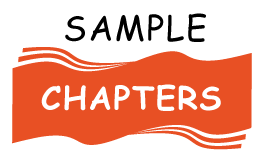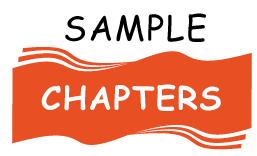Book Sharing by Authors on Social Media: A Comprehensive Guide

In the digital age, social media has become a powerhouse for connecting people, ideas, and cultures. For authors, it is an indispensable tool for sharing their work, engaging with readers, and building a personal brand. In this comprehensive guide, we will explore the various strategies and platforms authors can use to share their books on social media effectively.
The Power of Social Media for Authors
Social media offers authors a unique opportunity to reach a global audience with minimal cost. By leveraging these platforms, authors can:
- Increase visibility: Social media allows authors to showcase their work to millions of potential readers.
- Engage with readers: Authors can interact directly with their audience, gaining valuable feedback and fostering a loyal fanbase.
- Build a personal brand: Regular engagement helps authors establish a recognizable and trustworthy presence online.
- Network with other authors: Social media is a hub for connecting with fellow authors, sharing experiences, and collaborating on projects.
Choosing the Right Platforms
Different social media platforms offer unique benefits. Here’s a breakdown of the most popular platforms and how authors can use them to their advantage:
1. Facebook
Audience: Wide-ranging, with a significant number of older users.
Strategies:
- Author Pages: Create a dedicated author page to share book updates, events, and personal insights.
- Groups: Join or create groups related to your genre to connect with like-minded readers and writers.
- Live Sessions: Host live readings, Q&A sessions, and book launch events to engage directly with your audience.
- Advertising: Utilize Facebook Ads to target specific demographics and increase book sales.
2. X.com (formerly Twitter)
Audience: Diverse, with a focus on real-time interaction.
Strategies:
- Consistent Posting: Share updates, quotes from your book, and personal thoughts regularly.
- Hashtags: Use relevant hashtags (#amwriting, #bookpromo) to reach a broader audience.
- Engage in Conversations: Participate in chats and engage with your followers to build a community.
- Pinned Posts: Pin a post about your latest book to your profile for increased visibility.
- Communities: Join or create communities similar to Facebook and LinkedIn groups to connect with readers and other authors.
3. Instagram
Audience: Visual-focused, with a strong presence of younger users.
Strategies:
- Visual Content: Share eye-catching images of your book covers, writing process, and book-related events.
- Stories and Reels: Use these features to give behind-the-scenes looks and share short, engaging content.
- Bookstagram Community: Engage with the Bookstagram community by using relevant hashtags and participating in challenges.
- Instagram Live: Host live sessions to connect with your audience in real-time.
4. LinkedIn
Audience: Professional, with a focus on business and industry connections.
Strategies:
- Professional Updates: Share your writing milestones, book releases, and industry-related content.
- Networking: Connect with other professionals in the publishing industry.
- Articles: Publish long-form content related to writing and publishing to establish yourself as an expert.
- Groups: Join or create groups related to writing and publishing to share insights and network with peers.
5. TikTok
Audience: Primarily younger users, with a focus on short, engaging videos.
Strategies:
- BookTok: Engage with the BookTok community by creating short videos about your books, writing tips, and book recommendations.
- Challenges and Trends: Participate in trending challenges to increase visibility.
- Behind-the-Scenes: Share insights into your writing process and daily life as an author.
6. Reddit
Audience: Diverse, with a strong emphasis on niche communities.
Strategies:
- Subreddits: Join subreddits related to writing, reading, and your specific genre to share your work and engage in discussions.
- Ask Me Anything (AMA): Host an AMA session to interact directly with readers and answer their questions.
- Book Recommendations: Participate in threads where users seek book recommendations, offering your book where appropriate.
- Engage with Community: Regularly contribute to discussions to build credibility and rapport within the community.
7. MeWe
Audience: Privacy-focused users looking for a more secure social networking experience.
Strategies:
- Groups: Join or create groups related to writing and reading to share your books and engage with a like-minded audience.
- Content Sharing: Post updates, book excerpts, and writing insights regularly to keep your audience engaged.
- Events: Organize virtual book launches, readings, and Q&A sessions within MeWe groups to interact with readers.
Effective Book Sharing Strategies
Once you’ve chosen your platforms, the next step is to develop effective strategies for sharing your book. Here are some proven tactics:
1. Create Engaging Content
Content is king on social media. Here are some ideas to keep your audience engaged:
- Book Excerpts: Share intriguing excerpts from your book to entice potential readers.
- Character Profiles: Introduce your characters through detailed profiles and backstories.
- Writing Process: Share insights into your writing process, including challenges and triumphs.
- Reader Reviews: Highlight positive reviews from readers to build credibility.
2. Host Giveaways and Contests
Giveaways and contests are a great way to increase engagement and attract new followers. Consider offering:
- Free Copies: Give away signed copies of your book.
- Exclusive Content: Offer exclusive content or sneak peeks to contest winners.
- Collaborations: Partner with other authors or influencers to reach a broader audience.
3. Engage with Your Audience
Building a community requires active engagement. Make sure to:
- Respond to Comments: Reply to comments and messages from your followers.
- Ask Questions: Encourage interaction by asking your audience questions related to your book or writing process.
- Host Live Sessions: Regular live sessions can help you connect with your audience on a personal level.
4. Utilize Analytics
Most social media platforms offer analytics tools to help you track your performance. Use these tools to:
- Identify Trends: Understand what type of content resonates most with your audience.
- Optimize Posting Times: Post when your audience is most active to maximize engagement.
- Measure Success: Track metrics like likes, shares, and comments to gauge the success of your campaigns.
Leveraging SEO Benefits
Social media can also boost your website’s SEO. Here’s how:
- Backlinks: Include links to your website or book purchase pages in your social media profiles and posts.
- Content Sharing: Encourage followers to share your content, creating more backlinks to your site.
- Engagement: High engagement rates can signal to search engines that your content is valuable, potentially improving your search rankings.
Final Thoughts
Sharing your book on social media is a multifaceted strategy that requires consistency, creativity, and engagement. By choosing the right platforms and developing effective sharing strategies, you can reach a global audience, build a loyal reader base, and ultimately boost your book sales.
Remember, the key to success on social media is to be genuine and interactive. Share your passion for writing, engage with your audience, and watch your online presence grow. Happy sharing!
For more tips on book promotion and sharing strategies, visit SampleChaps.com and join our community of authors dedicated to promoting their work and connecting with readers worldwide.



